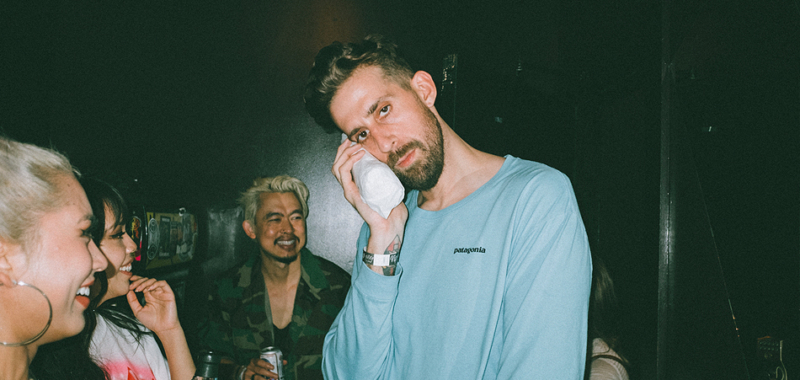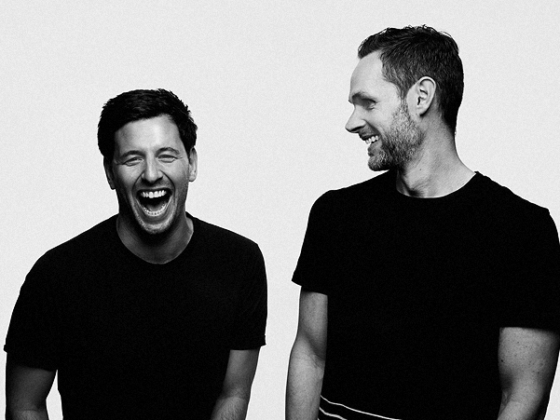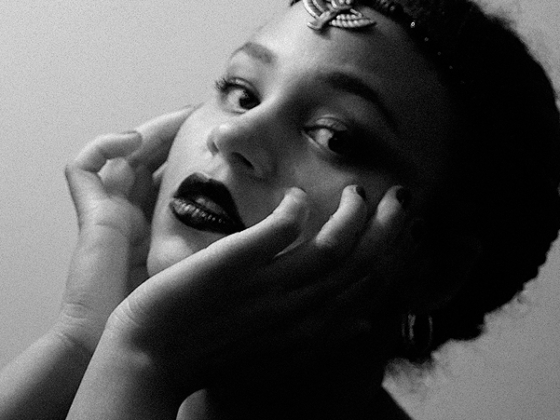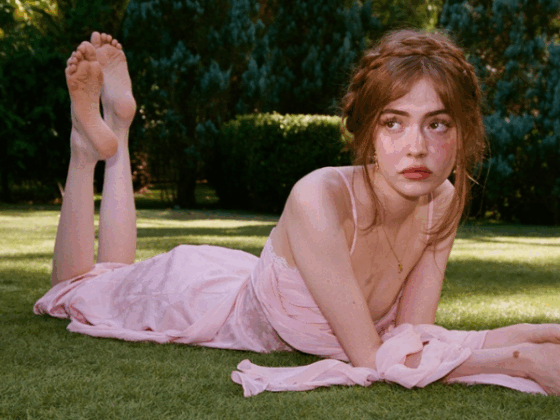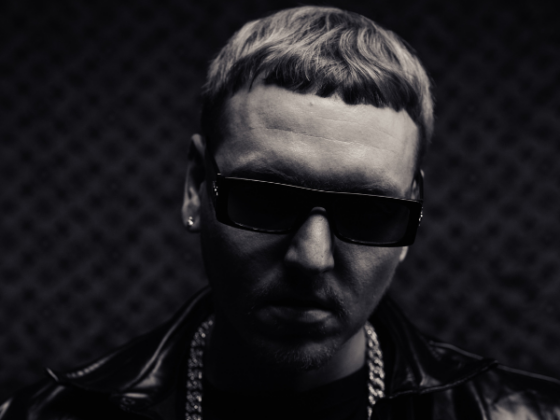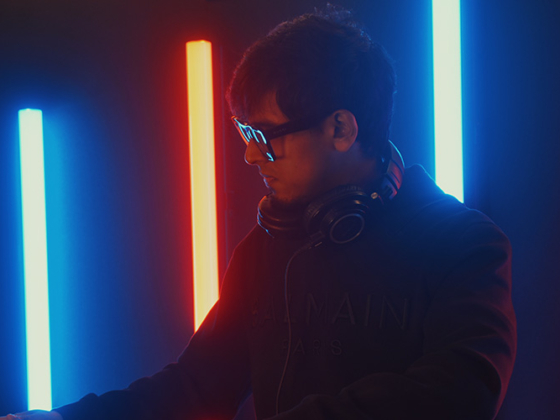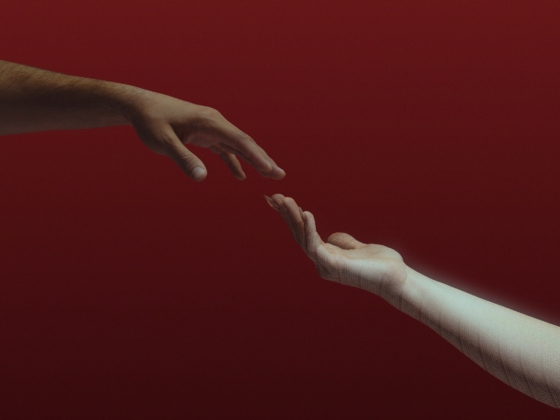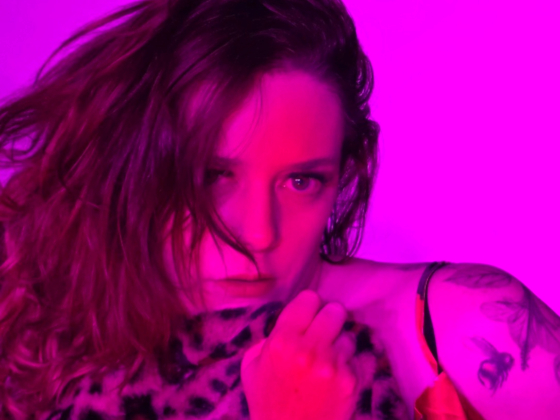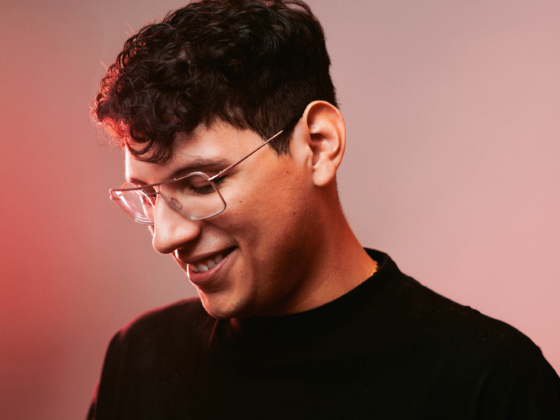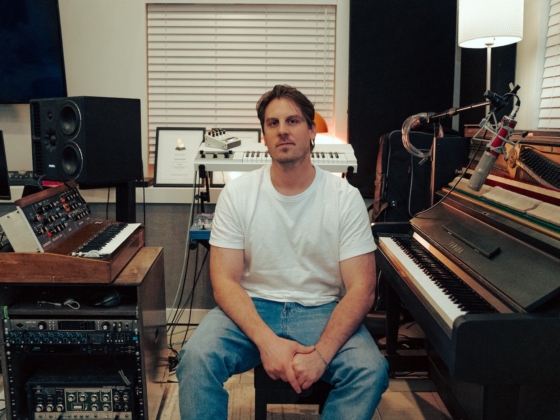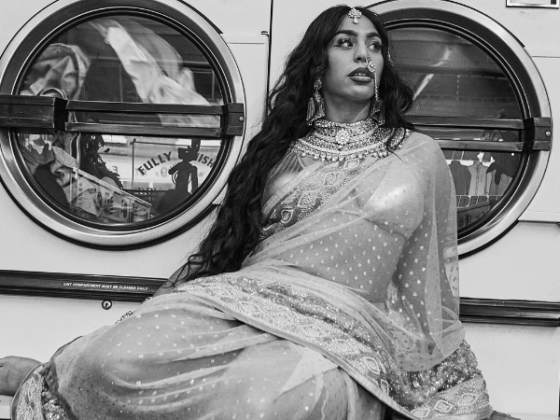To say that Jason Stewart a.k.a. Them Jeans is just a DJ would be like saying Larry David is just a television writer. The 6’8” party impresario, producer, DJ, podcaster, and rising amateur chef has been a major figure in the west coast electronic music scene in both stature and presence. Along with Steve Aoki, the Los Angeles native helped jump start the legendary Cinespace parties that gave rise to the popularity of the electro scene – that in turn was pretty much the catalyst behind the popularity of electronic music in the United States today. Jason was nice enough to have me over his East-side Los Angeles home to talk about his musical past, present, and future.
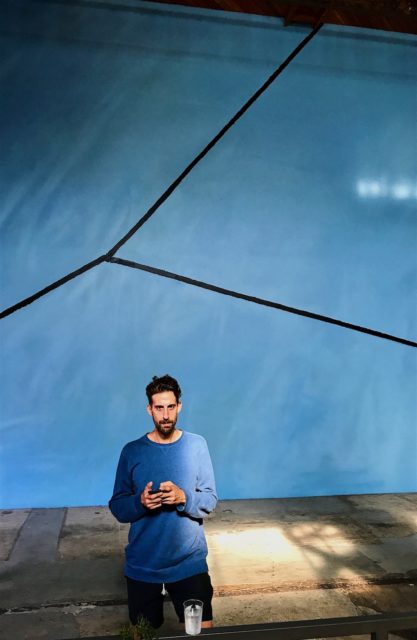
EM: Hey Jason! When did you first move to LA and what brought you here?
TJ: I moved to LA right when I was 21. As soon as I was able to leave Orange County and come to LA. I moved here because Orange County didn’t have enough going on for me there in terms of art, culture, excitement, and people. I mean, you’ve been to Orange County before, right?
EM: Plenty of times, yeah. I mean they have good breakfast burritos.
TJ: Good breakfast burritos! See you’ve found a way to say something very nice about it. That’s true they are very dank burritos. But yeah you know it’ll always be home for me, but I had to come up to LA where there’s more shit poppin’.
EM: Now did you immediately start DJing when you were in Orange County, or did you kind of pick that up when you moved to LA?
TJ: No I picked that up when I was up here (LA). When I was in high school, our friends would mess around with turntables and we would listen to like Beat Junkies mixtapes and try and pretend like we knew how to scratch, and listen to Portishead and stuff like that. Never really took it seriously. But then when I was up in LA I started throwing parties first and then I started DJing after that. So I probably started DJing around 24 or so. I threw parties with other DJs first and then I thought to myself that these idiots can’t be that talented. This doesn’t look that hard if these people can do it. Then I bought some tables on Craigslist and got some records at Amoeba in the dollar bin and just started practicing. Then just took off from there.
EM: Yeah that’s kind of part of the bulk of what I wanted to talk about. I feel like the parties you were doing at Cinespace were one of the more influential parties in terms of the entire scene and what kind of broke electronic music into the American hemisphere. At Cinespace I know you were doing that (party) with Steve Aoki. How did you first meet him?
TJ: He’s also from Orange County and we both grew up in the same hardcore straight-edge scene, but we weren’t friends back then because we were kind of in different cities. I had met him a few times. I started throwing parties and going out back when Steve was a party boy. He’s not a party boy anymore. But in the early to mid-2000s I would go to parties that he threw, and he would go to parties that I threw, and when the opportunity came to start a new party I just asked him and Franki Chan if they wanted to be the resident DJs at the night I was doing at Cinespace LA. That was before I was DJing. I was like “you guys want to play? I’ll give you $200” Then we just started cooking from there and it just took off. We had a very close business relationship. Doing that party together brought us together in a way where we would have never been friends before, but then we became tight bros after that.
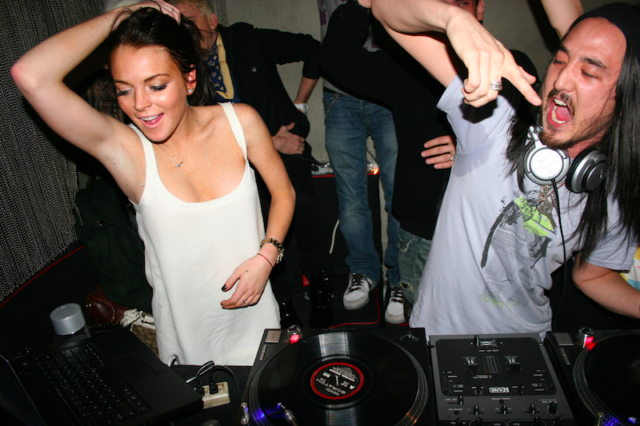
EM: How did you know when those parties literally became the hottest thing in LA?
TJ: It took me a while to really realize what was going on. Because it was just kind of little plateaus that would happen and get me really excited. When we first started nobody would come. I would throw a party and even before Steve and Franki came on board and we were playing dance music we would just have random people DJ and like 17 people would come but it would be an amazing party. One night Ariel Pink is going to DJ and he’s just going to chain smoke the whole time and be on whatever he was on and it didn’t matter what he was playing. People were just there to get fucked up. I would just get excited if one of the guys from Interpol would come in and get drunk. Nobody really was there but three people there would be VIPs in the game. It would be like I made no money that night but the Yeah Yeah Yeah’s came and drank all night or something like that.
Then we started hitting more and more plateaus where you would see celebrities trying to get in or you would have it where instead of us reaching out to DJs to try and play we would have DJs begging us to play. That’s when it started getting a lot more fun. Doing a party every week is a lot of work. It’s tough to have a fresh lineup every single week, 52 weeks a year. So when it was really cooking it got easier when agencies were like “Please book blah blah blah” Then it really felt like something big had happened when Jimmy Iovine would come to check out a band that we had booked. That started feeling kind of bigger than we realized it was. The biggest one for sure was when Ed Banger started doing parties with us. Every year after Coachella we would have the Ed Banger party where all the guys would be in LA for Coachella week and nobody could be billed at all because of Coachella so we would just say it was an “Ed Banger” party. Everyone would just go insane because that was the peak of Justice and all those guys. Then when Daft Punk played without their helmets on. That was the moment where I don’t think anything could top that because that’s something that’s never happened.
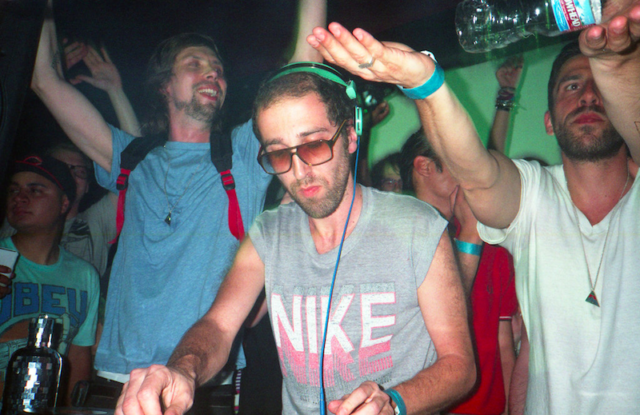
EM: Daft Punk?! Amazing! What do you remember about that night?
TJ: It was one of those nights where it was 50% everyone was wasted and then 50% everyone was so excited that they weren’t even paying attention to the music. It was such a spectacle! It was a tiny room with a stage that fits 300 people and there would be 900 people crammed into it and everyone on stage was a super cool DJ. Like EVERY big DJ was on stage. It didn’t even matter what they were playing you were just happy to see Daft Punk playing anything you’re like “THIS IS CRAZY!” It’s like when you’re at a concert and Jay-Z or Rihanna comes out to do a song and nobody in the crowd knows it’s going to happen and everyone just grabs their phone and start taking pictures and video taping it. They’re not even paying attention to the music. The spectacle is making you feel like you’re high or something.
EM: That’s a really good analogy. What was that feeling like for you in terms of you starting off playing for 15 people, then getting together with a couple of your buddies and having it turn into the biggest group of all time was now DJing 2 steps away from you. This all started with you and now it’s culminating in this grandiose spectacle with every person in the industry you could ever want on stage with you experiencing the same thing.
TJ: It was insane. Looking back now it was the perfect combination of Steve and I being an odd couple to work together. It brought us together. Like I had my strengths and weaknesses and he had his strengths and weaknesses and they worked really well together. I would run things and organize the bookings and do the graphic design with the flyers and all that stuff. He was the hustler who had all the connections and he would just get everything done. Us working together at our best allowed us to really get some crazy shit done. I learned a lot about work ethic from Steve because he’s probably the hardest working guy I’ve ever seen. He’s just one of those guys that would call you at 1 in the morning about something you would normally e-mail your friend about and just ask you something, get the answer, and then just hang up. The kind of guy that just gets it done. He really helped push me to work harder.
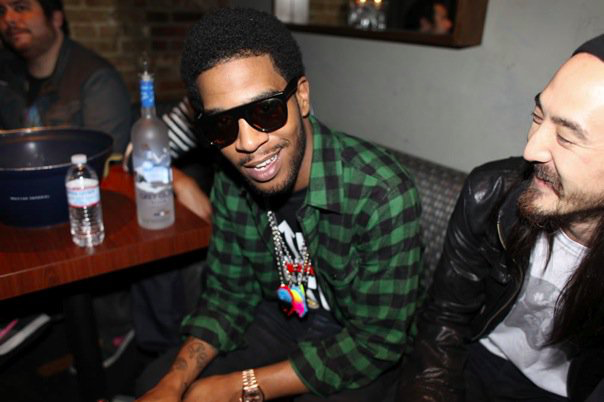
EM: So if you’ll humor me for a second, would you say that what people refer to now as “Bloghouse,” even though it wasn’t necessarily called that back then, it was more referred to as Electro. Would you say it’s the baby of a disco dad and a punk rock mom?
TJ: Hmmm it was right when the DFA thing started going, and bands like LCD Soundsystem and The Rapture and those kinds of bands would play dance-y music with live instruments and have it be a rock and roll kind of vibe. I think that “Bloghouse” was kind of the answer to when people wanted that DFA style music. It would be like rock and roll style recordings of bass guitars and analog keyboards and synthesizers. There would be some groovy, sexy, funky disco which was fine but people wanted the heavier version of it. Listening to indie-rock is chill, but a lot of people needed to thrash and needed some heavier shit because we’re 18 and we’re drinking Sparks, and learning about molly for the first time. So people were like ok if you can use computers to make rock music be dance music, then we’re going to figure out how to do that plus make it heavier and more distorted and grittier. A little more punk rock in terms of not trying to have it sound like this perfect warm, rich, studio recording and have it be more fucked up sounding and make you want to stage dive.
EM: I think there was also a certain amount of sex appeal because most of the artists were from Europe at first. It was like this foreign aspect to it where it was really popular across the pond and now they’re bringing this new sound stateside. Kind of like how soccer and truffles have gained more popularity here in the last decade. Listening to electro at that time made people feel a little more ahead of the curve because they knew what was big overseas.
TJ: That was the perfect storm of things. The fact that they (the DJs) were these skinny French dudes with leather jackets and ripped jeans. Every girl had a crush on them and every guy wanted to be them. When they DJ’d they would chain smoke. If I would try and smoke inside the club a security guard would be like “Hey fucking put that out!” If those guys do it for some reason security is just looking at them like “Man that guy is cool!” I remember we booked Mr. Oizo for Cinespace and asked him what he wanted on his rider. It ended up being a bottle of brandy, a bottle of champagne, and the third thing was a waiver that said if the police come and find him smoking in the club and give him a ticket we have to pay for it because he’s going to smoke in the club. Period.
EM: So what did you see as your role in all this. Besides being a promoter, how did you end up getting into producing? I’ve heard your songs being played out by all these artists, and I saw your name on countless lineups back in the day.
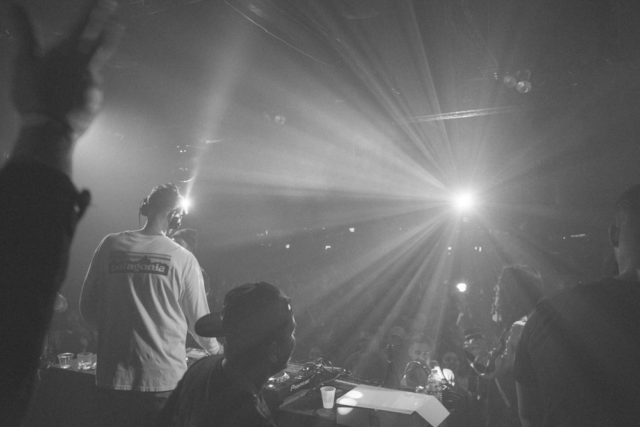
TJ: When I started DJing I just got really into certain parts of DJing that were my strengths and I learned a lot of stuff from (DJ) AM. I would go and watch him play and just kind of study him. He would let me hangout in the DJ booth and pick his brain and we would exchange music. I would freak out every time he would send me a message on instant messenger like “What’s up? Send me that song you played last night!” I realized that he’s an amazing DJ and I’m never going to be able to do all that stuff, and I never wanted to learn how to scratch and do crazy stuff like that. I decided I was just going to do “long blends”. That’s what I was into.
EM: What’s a “long blend”?
TJ: He (DJ AM) would do lots of fast mixes and play 10 songs in a minute and do all these clever mixes. That was too much for me. He would always freak out when he would watch me play two songs together at the same time for like two minutes and see what happens. He would look at me like I was a crazy person. I would be squeezing the turntable pins with boths hands on both records trying to beat match them so they were both going and I would try and see how long I could do that for if the songs were sounding good together. That was my way of trying to impress him. I got into producing just from doing that. I would DJ and realize two songs actually sounded really good together, and I would cut them up and make little edits. I would be like “This Uffie song is tight but I need it to be a little faster.” I would add a little intro and then make my own edits of tracks like that. I look back on a lot of them and I’m like “Wow that sounds like shit.” But some of them sound good! There was this Radiohead song that I sped up like 40 bpm and it was a super high-pitched like chipmunk Kanye-sample but it sounded kind of interesting and weird. I put it up on Zshare and then KROQ played it on the radio. Looking back on it that song was so bad but that’s just how weird it was in 2008.
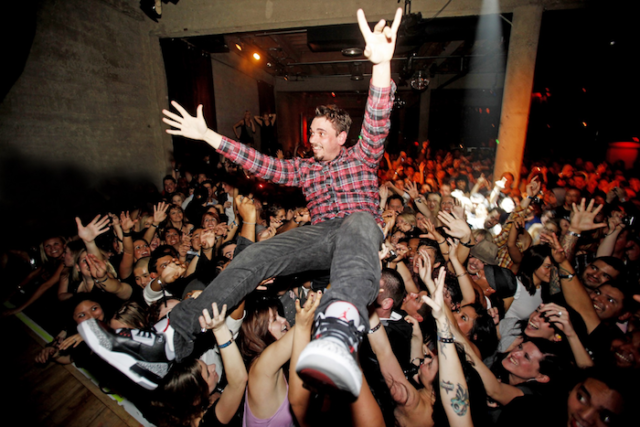
EM: Yeah it was definitely a different world back then. People were clamoring for all types of remixes and new takes on existing songs, especially if the song was more well-known but you put a more electronic spin on it. So when did you start to feel like the dance music scene was maybe not for you anymore? I know now you seem to be playing a lot more hip-hop and R&B.
TJ: I still play dance music in my sets all the time but there was a time where I was playing a lot of dance music that was popular that I did not necessarily enjoy. I was just doing it and my heart wasn’t that in it. If you’ve seen the way dance music has gotten over the years. A lot of it is just awful. There’s tons of good dance music still coming out but a lot of the good stuff is just in the underground. It got to the point where there wasn’t really much of a scene in LA that I felt like I was a part of. Ever since the 90s, 80s, 70s, there’s been good dance music, and cheesy awful shit, and then much like the parallels of our politics nowadays, the evil shit started winning. Every manager and agent in dance music is now like a jock who cares more about their fantasy team than music and that just always seemed wrong. I got sick of how cheesy everything was. It was frustrating when I would try and play all this dance music that I liked, that I thought was good but the crowd didn’t want to hear it.
EM: There was no longer a rebellious aspect to it.
TJ: Yeah very true. There’s always great parties in LA that did that, like A Club Called Rhonda, and people who book cool artists and do it the right way. When I first started DJing I was playing rap music, and I like playing rap music just as much as I like playing dance music. 50/50. I listen to both 50/50 as well.
Jason currently co-hosts 2 Podcasts. Tall Tales with Nikki Jagerman and The Stew. The former being a conversational hour covering anything and everything while the latter covers Jason’s other passion in life… food. We spoke about Tall Tales and how it actually started out as music-centric podcast.
EM: Right. For there to be a level of authenticity your set has to represent as much varied selection as your own personal taste. If you’re into rap, punk, and electro then the art of DJing comes in play when you’re able to piece all of those genres together and make it sound coherent. Let’s about your podcast. Once you felt like you had less of a footing in the music industry and it had less appeal to you, I’ve heard you talk about how you’ve always had this comedic itch you’ve wanted to scratch. You said you thought a podcast would be a great way to not only use your contacts you’ve made in the music world, but also get your personality out there.
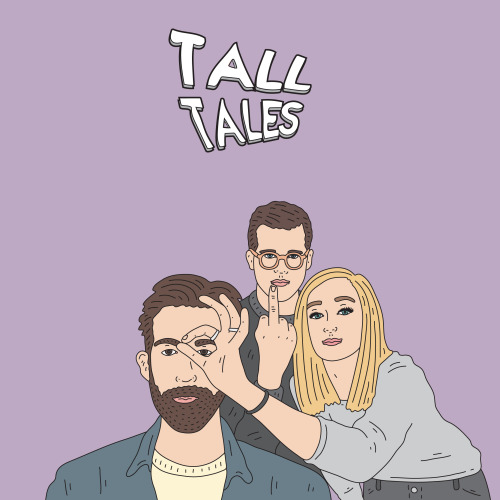
TJ: I always loved conversations with people and I was a fan of comedy. I never really had an outlet for it other than bulshitting with my friends or something. When podcasting first came out and I started seeing things pop up, I started listening to them and it just seemed like something I wanted to try. I just got a few microphones and luckily since I already had a background in producing music I already had the gear to do it. I already had an advantage there so it was just one of those things where you have to just start somewhere. Like anything in life you just have to start doing it, and at first it’s going to be bad, and you just have to keep going and listen back to it and learn from your mistakes. It’s something that’s become a huge part of my life now. I’ve used it to make so many new friends over the years. People all over the world.
Podcasting is such an intimate thing. You listen to it on your earbuds while you’re walking the dog or if you’re just stuck in traffic in your car by yourself. It’s just you and another person. It’s a very meditative thing. You develop these strong connections with the people (podcasters). So people will come up to me all the time and they’ll feel like they already know me even though they’ve never met me because they’ve listened to me for so many hours. It’s cool to be able to do that, and anyone can do that now. We’re in a time of 2018 where anybody can have a podcast, and it doesn’t really cost anything, and you can just do it. That’s the super exciting part. Think of how many Howard Sterns have lived in the world that did not have an audience to hear them. There’s probably thousands of people who would have been the best podcast hosts of all time. The coolest guy in the neighbourhood, or in the village, or where ever that no one would have had a chance to hear. Now we can hear everything. Everyone can get a SoundCloud now.
EM: I’ve heard your podcast evolve over the years from having A-Trak and Classixx to where now it’s at a place where you have your own cast of characters. Now fans get really excited when it’s a Chris Chang episode or a Chris Black episode. It’s almost like you have a cast of a tv show.
TJ: Yeah with Classixx and A-Trak those are examples of DJs who are really good at talking and I love podcasting with, but there’s a lot of people who are not that good at it. It is like the cast of the TV show. Like when Alec Baldwin hosts SNL you know it’s going to be good because he’s done it a hundred times. Or as long as Justin Timberlake is hosting SNL, or the Lakers are playing the Celtics, and now if Chris Black is on Tall Tales then the Earth is still spinning, and we’re still alive, and everything is going to be ok at least for that day.
It was really enlightening talking to Them Jeans about podcasting and getting an oral history of my favorite time in electronic music. If you’re in the Los Angeles Area, keep on the lookout for him spinning at the Ace Hotel on Thursdays and playing slow jams at the monthly 143 party in Echo Park. He also has a cookbook coming out soon!
Connect with Them Jeans: Facebook | SoundCloud | Twitter | Instagram

